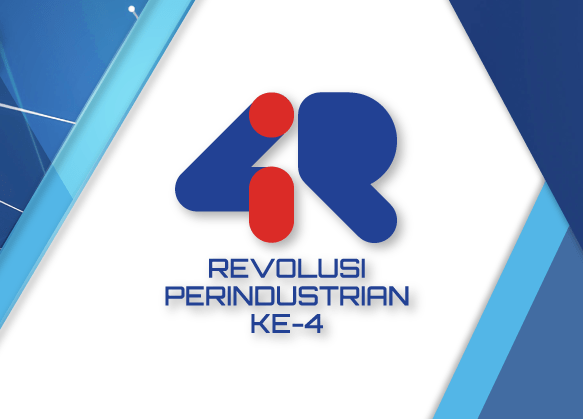Despite being bogged down by the pandemic, Malaysia continues to look at policies and changes it has to adapt for the long run. MyDigital was launched in May to drive the nation towards digitalisation an aspect which saw much spotlight during this 2 year period where connectivity became a critical point. With the launch of 5G by year end, the progress the country is making is commendable, we identified the issues and rectifying them in a collective manner. (note: a public private collaboration is imperative for a successful execution)
And now together with the Economic Planning Unit, Ministry of Science and Technology, we have launched the National 4IR policy. Malaysia as a country which predominantly is involved in manufacturing and its timely that it is readying itself for the coming change. The industrial revolution has seen many iterations over the century from steam, mechanical now we are about to witness a revolution unlike any other, where for the first time human intervention will be minimal to nil. Consider technology like, Artificial Intellience, Blockchain, Internet of Things, Cloud Computing and Bid Data Analytics, Advanced Materials and Technologies these will be the common terms used
So what is the Fourth Industrial Revolution (4IR)?
4IR refers to the disruptive transformation of industries through the application of emerging technology. It is
characterised by new technology that is fusing the physical, digital and biological worlds, impacting all disciplines,
industries and the economy. For instance, bioprinting uses digital file (digital) to print an object such as organs
(physical) with cells and biomaterials (biological). Digital economy and 4IR are interdependent and mutually
reinforcing. Digitalisation enables more sophisticated technology applications, innovations and the emergence
of new business models across all sectors. The wide adoption of 4IR technologies will accelerate the growth
of digital economy.
The National 4IR Policy is a broad, overarching national policy that aims to drive coherence in transforming the socioeconomic development of the country through the ethical use of 4IR technologies. It will support national development policies such as the 12th Malaysia Plan and the Shared Prosperity Vision 2030. It will also complement the Malaysia Digital Economy Blueprint in its ambition in driving the growth of digital economy. The policy
outlines the key focus areas which impact the people, business and government, in order to seize growth
opportunities and to address potential risks arising from 4IR.
Why National 4IR Policy?
4IR is inevitable. It is already changing the existing processes and systems affecting all aspects of human life.
4IR technologies has the potential to improve the wellbeing of society by raising income levels, increasing societal
cohesion, improving efficiency, providing convenience, safety and security, and better protecting and conserving
limited natural resources. It presents new and promising opportunities for Malaysia to attain a high-income nation
status by elevating our strengths and advancing our existing competitive edge for the betterment of the society.
However, irresponsible use and manipulation of technology can also pose significant risks to the labour market,
widening inequality and deterioration of value and ethics.
The National 4IR Policy is needed to provide:
• Key guiding principles and strategic direction to ministries and agencies in formulating policies and action plans in order to optimise resource allocation and implementation coordination in matters related to emerging technologies.
• Guidelines to address risks from 4IR technologies whilst preserving values and culture
Where are we going – vision and outcomes?
With the National 4IR Policy, action plans and initiatives of various ministries and entities will be aligned in steering the country to achieve a balanced, responsible and sustainable growth by leveraging technological adoption and innovation.
The National 4IR Policy will advocate the use of technology for good – social, economic and environment.
For society – The rakyat will then be able to enjoy improved quality of life. Technologies will be used to achieve better work-life balance, greater convenience, safety and security, job transformation into higher value-add and higher pay, improved social wellbeing and environmental sustainability.
For businesses – Businesses will become more productive, competitive and innovative in their offerings, business operations and value delivery to the consumers. Conducive doing-business environment that allows more flexibilities for technology innovation will be established to create greater opportunities for integration, or cross-sectoral technology applications.
For the government – A technologically-enabled government will provide more efficient, effective and modernised public services. National planning will become more data-driven and intelligent to meet the demand and expectations of the citizens.









